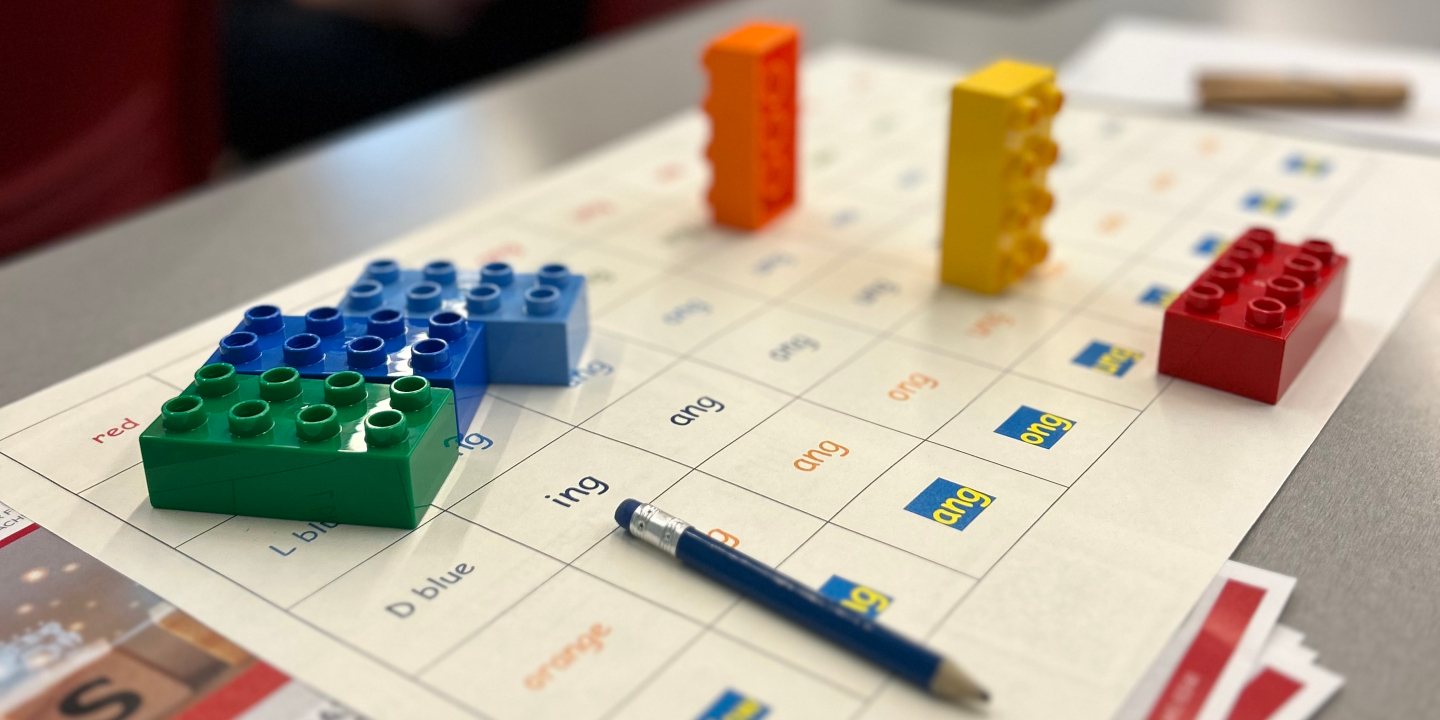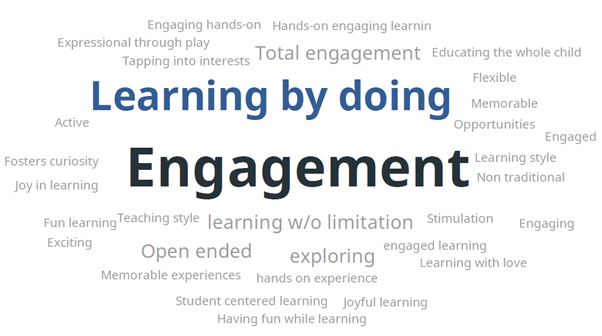
Learning through play with STEM teachers at Maryville University
ACER news 22 Aug 2023 6 minute readACER Senior Research Fellow Rachel Parker gave a keynote presentation to launch a series of STEM playful learning workshops in St Louis in August.
The workshops, which were organised by Maryville University’s Centre for Access and Achievement and facilitated by elementary school teachers, covered topics such as:
- design thinking with real world applications
- maker spaces
- integrating children’s literature, science and math concepts with hands-on art experiences
- novel engineering: build my dream playground
- exploring shapes and building structures
- stop motion animation.
Ms Parker presented to around 70 educators from a range of school districts in St Louis County on research about learning through play undertaken by ACER, the LEGO Foundation and the Ukrainian Educational Research Association over the past five years.
Ms Parker and LEGO Foundation’s Dr Bo Stjerne Thomsen are launching Day 2 of Research Conference 2023 next month with a keynote presentation on play’s role in the primary school classroom.
In St Louis, Ms Parker shared research on how learning through play is used in schools around the world, the impact on learning, and how success can be evaluated via a framework for quality.
Her presentation explored findings from the ACER-LEGO Foundation 4-year grant Learning Through Play at School, Ukraine, including the shifts teachers have made to incorporate play in their early years classrooms. These shifts include using LEGO’s Six Bricks, providing meaningful resources materials, learning in groups or teams, and experiential activities that engage different senses to enhance children’s enjoyment of learning.
One participant said that the presentation ‘validated learning through play for me…we need to do it more in schools to keep students engaged and wanting to learn.’ Another said that they learned ‘different perspectives how education has progressed in a different country, learning and play we can have both, social emotional element can be addressed through play.’
As part of the presentation, Ms Parker gathered information from participants about their experiences and attitudes toward implemented playful pedagogies in the classroom. Teachers were asked about what learning through play means to them, and results were collected and presented live as shown here:

Two clear themes emerged about teachers’ perceptions of learning through play; that it involves ‘doing’ – an active or experiential element, and is synonymous with engagement.
When asked about how important learning through play is as a strategy to achieve their classroom teaching and learning goals, 95% of participating teachers responded that it was ‘important’ or ‘very important’.
Teachers were asked how they facilitate learning through play in their classrooms and responses were organised by themes such as integrated or cross-curricula learning, for example, combining literacy learning and maths concepts through novel engineering, games, use of technology, using manipulatives, and hands-on sensory activities.
Teachers cited the most common challenges to using playful pedagogies in the classroom as a lack of time (40%) and the demands required of them to get children to the expect standards (27%). The most common enablers were cited as teachers’ skills (43%) and knowledge (28%) which reflected the high level of expertise among participants.
These responses aligned with some of the challenges that teachers in Ukraine described regarding implementing learning through play, such as lack of time and the requirement to achieve expected standards. In contrast to US teachers, teachers in Ukraine cited motivation and support as the most significant enabler to implementing learning through play in the classroom.
ACER Research Fellow Kellie Picker, who works alongside Ms Parker and ACER Research Fellow Amy Berry on the Learning Through Play at School, Ukraine research project, is presenting a concurrent session at Research Conference 2023 on the experiences of Ukrainian teachers. The session will highlight changes to the teachers’ beliefs and classroom practice as they implemented learning through play in their classrooms, as well as the enablers and barriers they faced.
To remain true to the importance of play in learning, the session will include playful breaks to provide participants with time to connect the lessons from Ukrainian classrooms to their own learning environments.
(The image used in this article is of an activity mat ©Amy Pritchard. Photo by Angelina R Moehlmann.)
